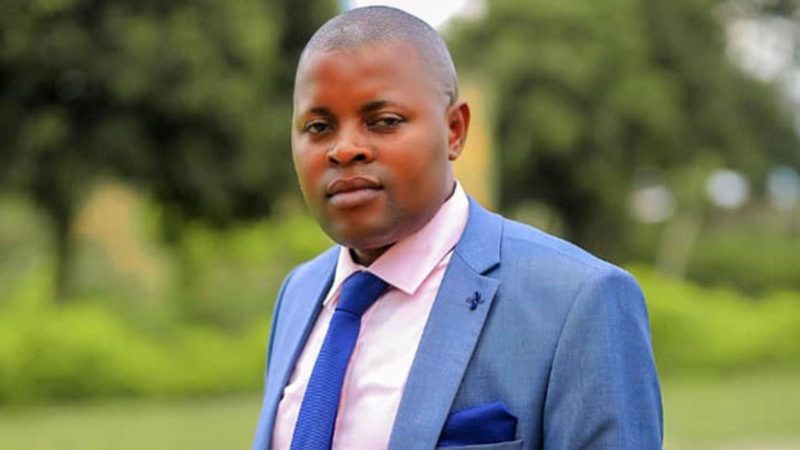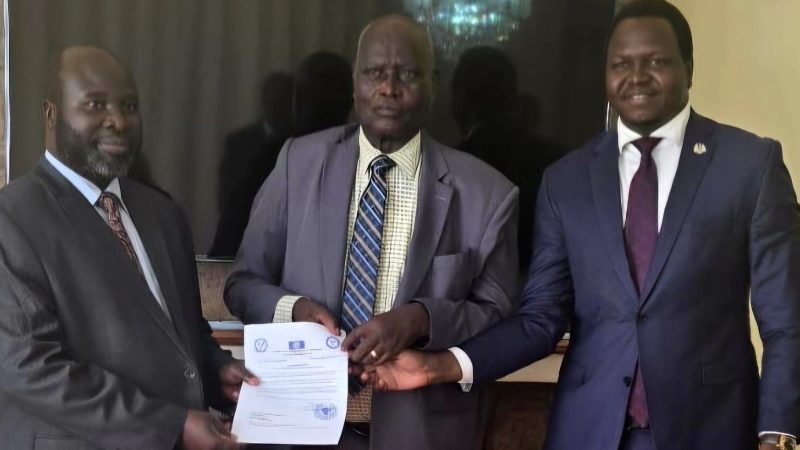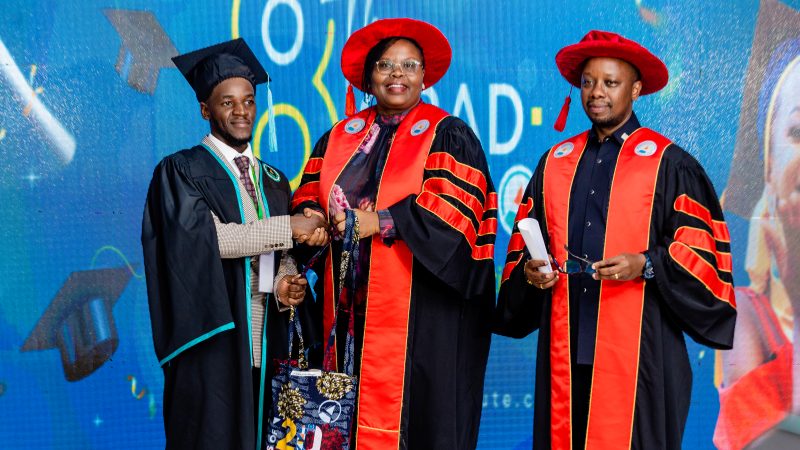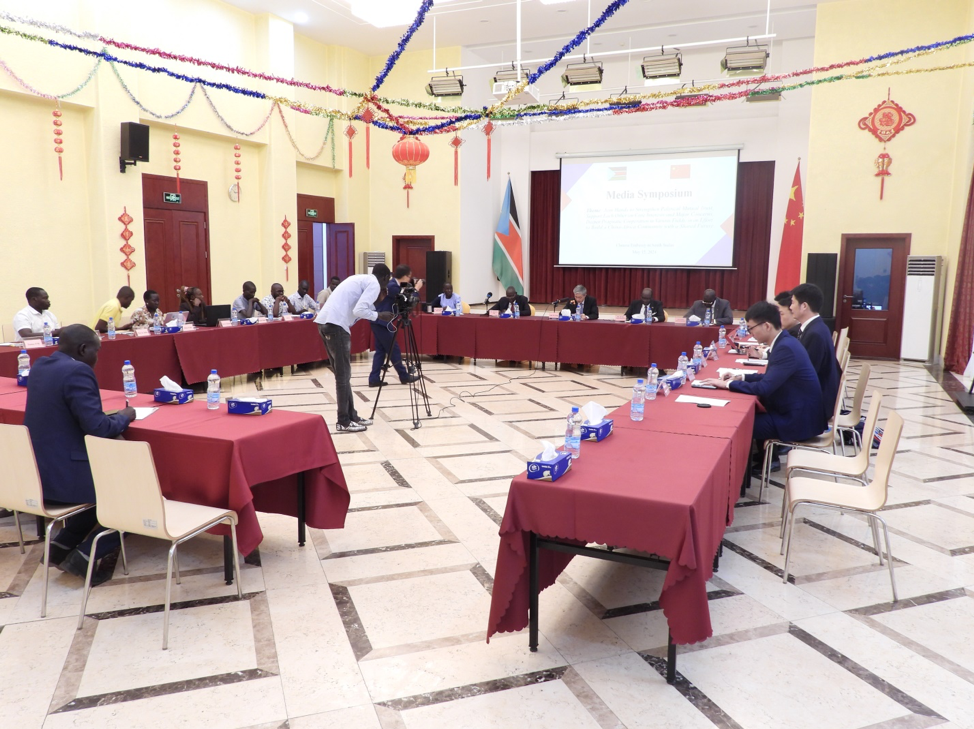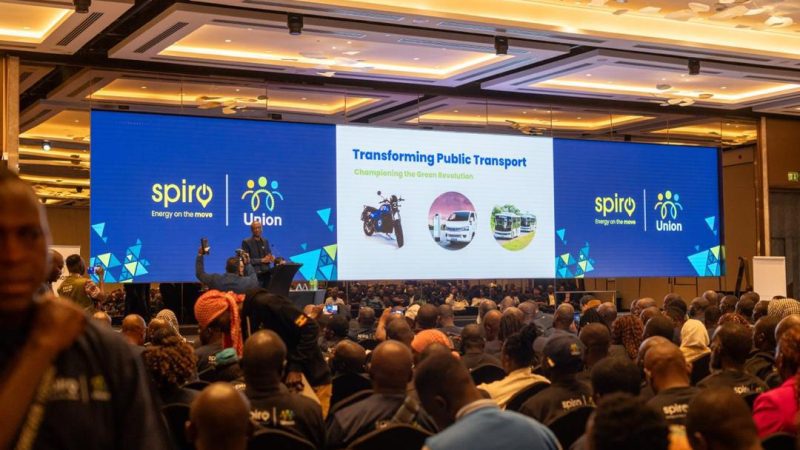South Sudan journalists attend media symposium at the Chinese embassy on Wednesday in Juba.
The Chinese Ambassador in South Sudan Ma Qiang on Wednesday said that media exchanges between the two countries have helped to strengthen people-to-people relations by bridging knowledge gaps.
Ma said during the one-day media symposium held in Juba, that the media exchanges over the years have promoted cultural exchanges between China and South Sudan.
“The media is an important window for deepening mutual understanding between China and South Sudan. Through the media, the Chinese people can see a South Sudan that is moving towards peace and stability and is full of development opportunities,” Ma said.
The media symposium attended by 15 South Sudanese journalists including news editors was held under the theme: “Join hands to strengthen political mutual trust, support each other on core interests and major concerns, and deepen pragmatic cooperation in various fields, in an effort to build a China-Africa community with a shared future”.
Ma noted that the training of South Sudan journalists in China over the years has enabled people of South Sudan to understand a real, multi-dimensional, and comprehensive China.
“I believe that through your efforts, South Sudanese people will be able to break out of the outdated frameworks and many false narratives about China established by Western media, and build your own perspective on China,” he said.
Ma disclosed that the Chinese embassy will continue to provide opportunities for South Sudanese journalists to visit and get trained in China, and to extensively engage in exchange and cooperation projects with media organizations.
“Together, we will tell the stories of an energetic, bustling China and the stories of China and South Sudan working hand in hand to build a community with a shared future for mankind,” he said.
Yath Awan Yath, Undersecretary of the Ministry of Information, Communication Technology and Postal Services, commended the Chinese embassy for supporting both government owned media and private media houses in the country.
“I am much impressed, on seeing that the government of China is collaborating with media in the private sector, and this is very important for us because we are developing an inclusive policy in which private media houses and private institutions that are working in media sector are included in all aspect of development,” Yath said.
He said they expect a vibrant media to play very important role during the upcoming general election scheduled for December 2024.
Yath noted that government owned media and private media outlets in South Sudan are facing common challenges, such as limited number of trained skilled journalists, lack of modern equipment and also loss of experienced manpower due to low remuneration.
“We have challenges of developing the skills of journalists, and coming to the media institutions of government we have the difficulties of sustaining and retaining our best journalists,” he said.
“South Sudan Broadcasting Corporation (SSBC) continues to lose it’s best journalists due to low remuneration, but if we are able to commoditize the services that they are providing by way of migration from analog to digital operation then we will be able to pay them well,” Yath added.
In August 2023, the Chinese embassy in South Sudan handed over the China-aided facility housing a new TV studio production building to the management of the South Sudan Broadcasting Corporation.
The two-floor building includes a TV studio, virtual studio, recording studio, master control room, launch room, office room, and related supporting facilities.
Majak Daniel Kuany Alier, secretary general of the Union of South Sudan Journalists (UJOSS), said the media trainings in China have enabled journalists to act responsibly in their duties.
“We are seeing in all the newspapers, radio stations have embarked on nurturing public responsibility in all their programming, and this is one thing that everybody should emulate the media fraternity in this country,” Alier said.
He disclosed that UJOSS has already started building the capacity of journalists on electoral reporting in preparation for the upcoming elections.


